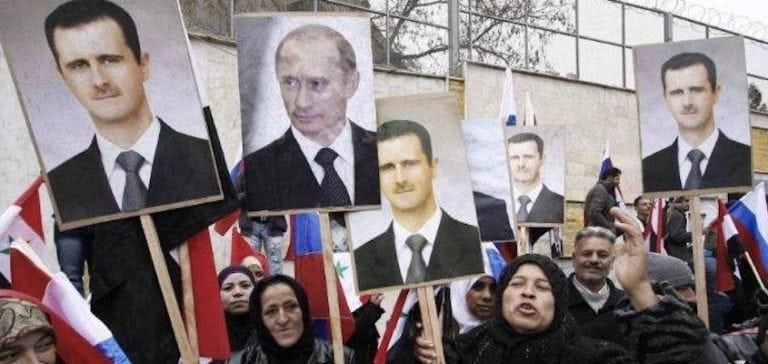“Russia has friendly relations with Israel, and more than a million Russian Jews emigrated to Israel, but Iran is a strategic ally of Russia.”
Ann Garrison: I’d like to go through some of these disparate reports about Russia and Israel one by one, but first, what do you think of Israel’s first ever participation in NATO war games near the Russian border?
Rick Sterling: The head of NATO recently confirmed that NATO would NOT get into a war involving Israel because Israel is not a NATO member. But Israel is a “partner,” and in 2014 the US Congress designated Israel as a “major strategic partner.” So I think Israel may be participating in the war maneuvers to demonstrate that it’s a good partner. Of course, Russia sees the NATO military exercises on its border as provocative. They are countering with their own military exercises, so it’s just a continuation in the wrong direction away from peace and mutual acceptance.
AG: OK, now to these reports about negotiations between Russia and Israel. Just before the news that Israel had participated in NATO war games near Russia, Bloomberg News reported that Israel was campaigning to break the alliance between Iran and Russia. What do you think of that?
RS: It’s certainly true that Israel is playing the diplomatic game and trying to drive a wedge between Russia and Iran, but the stories are highly exaggerated. They contain both contradictory information and outright disinformation. Russia has friendly relations with Israel, and more than a million Russian Jews emigrated to Israel. But Iran is a strategic ally of Russia.
AG: On June 2nd, the Times of Israel reported that Israel denies inking a deal with Russia on Iranian withdrawal from Syria. What about that?
RS: Well, I haven't seen any written deal. So what we're going on are media reports, which are spun in different directions. So, number one, I don't know if there was a written agreement. Number two, it's certainly the case that Israel is not only saying that they don't want Iranian militia or advisors anywhere near the border with the Israeli occupied Golan Heights, but also that they want them all out of Syria.
“Israel exaggerates the Iranian involvement in Syria for its own purposes.”
Russia and Syria may have agreed to relocate some of the Iranian advisors or Iranian militias away from the Golan Heights border. There were reports that some of those forces were headed out to eastern Syria to do combat there against ISIS, which continues to hold an important area. But even if Israel is trying to insist that no Iranian advisors or militia be in Syria, I can't see Syria or any sovereign state agreeing to such a demand. Israel exaggerates the Iranian involvement in Syria for its own purposes.
AG: Asharq Al-Aswat reported, also on June 2nd, that Russia and Israel had agreed to keep Iran away from Syria's South.
RS: Asharq Al-Aswat is a Saudi-owned newspaper coming out of London, so the Saudi influence and heavy anti-Iran bias is evident. The one element of this story that may be true is that the US may actually be uncomfortable with any agreement regarding the US forces that control the area around Al Tanf, a Syrian border area with Iraq. That’s the main highway from Baghdad to Damascus, and it’s currently controlled by US military and various armed militants—including former ISIS fighters—who are trained and controlled by the US. The US doesn't want to give that up, but the Syrian foreign minister is not mincing his words. He's saying that all the US forces must leave Syria eventually, and specifically that they should leave that area at the Syria-Iraq border soon.
Al Tanf and the highway between Iraq and Syria is a flashpoint. The US has no right to be there but seems to be digging in while Syria is getting increasingly adamant that they must leave. Things may come to a head there.
AG: Al Monitor says that Russia is “trying a new playbook to calm the escalation between Israel and Iran.” How about that?
RS: I think that's true. What we've seen emerge in the last several years is that the diplomat in the room is Russia. If you look at what's going on there, the Russian diplomacy is quite impressive and at times quite surprising. Six or eight months ago, the Saudi monarch flew to Moscow for the very first time. Russia brought Iran and Turkey together at the Astana talks, and Russia is trying to soothe the tension and danger of conflict between Israel and Iran. So that story is probably accurate.
AG: Have you seen any reports about negotiations between Russia and Israel on RT, Russia’s state- sponsored English outlet?
RS: I’ve seen some RT coverage, both stories and photographs. They certainly don't put the spin on it that some of the Western and Israeli media do.
The fundamental fact is that Russia doesn't want to go to war with the US. They realize how dangerous the situation in Syria currently is. They are not going to give up their long-term alliance with Syria, but at the same time, they're doing everything they can to cool things down and avoid a head-on conflict.
AG: OK, so we've gone through just a sample of the wildly disparate reports and commentary about this, but after reading a lot of it, I had the feeling that this is headed toward the Balkanization of Syria, which has been much discussed for a long time. What are your thoughts about that?
RS: Well, that's the reality on the ground right now. Turkey is occupying part of the north. Israel and Israeli-supported terrorists are occupying part of the south. The US and the so-called Syrian Democratic Forces (SDF) control big swathes of eastern Syria. So Balkanization is already the informal reality on the ground.
In early 2016, John Kerry called it “plan B,” dividing up Syria and partitioning it. He didn't say it quite that explicitly, but he was clearly suggesting that that's where things were headed. Now, in opposition to that, you've got the Syrian government saying that it will not allow partition and that the US has to leave Syria. Both Assad and the Syrian foreign minister are saying that increasingly forcefully. So we'll have to see. At the same time it's dangerous because there's also threatening talk coming from the United States.
“John Kerry called it “plan B,” dividing up Syria and partitioning it.”
The US, Turkey, and Israel are, of course, violating international law codified in the UN Charter by their military presence in Syria, but the Syrian government seems to be taking things step by step with the support of Russia and Iran. Hopefully, progress can be made and the conflict can be wound down. That would certainly be to the benefit of all Americans as well as Syrians and other peoples of the Middle East.
AG: Do you think that Russia is opposed to Balkanization?
RS: Oh, absolutely. They're opposed to it. They saw what happened with the war in Yugoslavia and the split, the separation into smaller, weaker states.
Russia also has its own experience with Western and Saudi-funded terrorism. If you look at a map, Syria is not that far from Russia, so of course they are very concerned with the situation there. They have a big stake in seeing the conflict wind down and a peaceful resolution, remote as that may seem. They're taking the lead in helping to resolve it and working toward reconciliation, which is going to require concessions on the part of Damascus. Russia has explicitly talked about an internationally supervised election in Syria, and hopefully that’s where things will end rather than in World War III.
The question is whether the US and its allies, especially Israel and Saudi Arabia, will give up their goal of “regime change” in Syria. Or will they continue to finance and arm the opposition to further bleed Syria and its allies? The US and allies are prolonging the conflict behind a pretense of humanitarian concern. Meanwhile they ignore obvious travesties such as the Israeli killings at the Gaza border.
AG: And just one more point of clarification regarding the presence of Russia, Iran, and Hezbollah in Syria. Their presence is legal, according to international law, because they’re there at the request of the Syrian government. Right?
RS: Yes, that's correct. Russia, Iran, and Lebanon’s Hezbollah are in Syria supporting Syrian sovereignty. The Iranian presence in the West tends to be wildly exaggerated, but they do have militia there. They also have advisors, and they’ve lent economic support to Syria. Both Lebanon and Iran know that their own governments are at risk there.
Of course, it was General Wesley Clark who said, back in 2007, that the US had a hit list of seven countries, and we've already seen several of them overthrown. Lebanon and Iran know they’re on that list. I’m sure they all realize that if the Syrian state is destroyed, if the government there is toppled and chaos reigns as it does in Libya, they’ll be the next targets. So they're there for their own sake and for regional stability, not just to support their ally Syria.

This work is licensed under a Creative Commons Attribution-NonCommercial 4.0 International License
All image captions, pull quotes, appendices, etc. by the editors not the authors.
Don’t fall for the post-modernist/relativist trap.
The struggle against the system requires lucidity, not narcissistic flim-flam.






